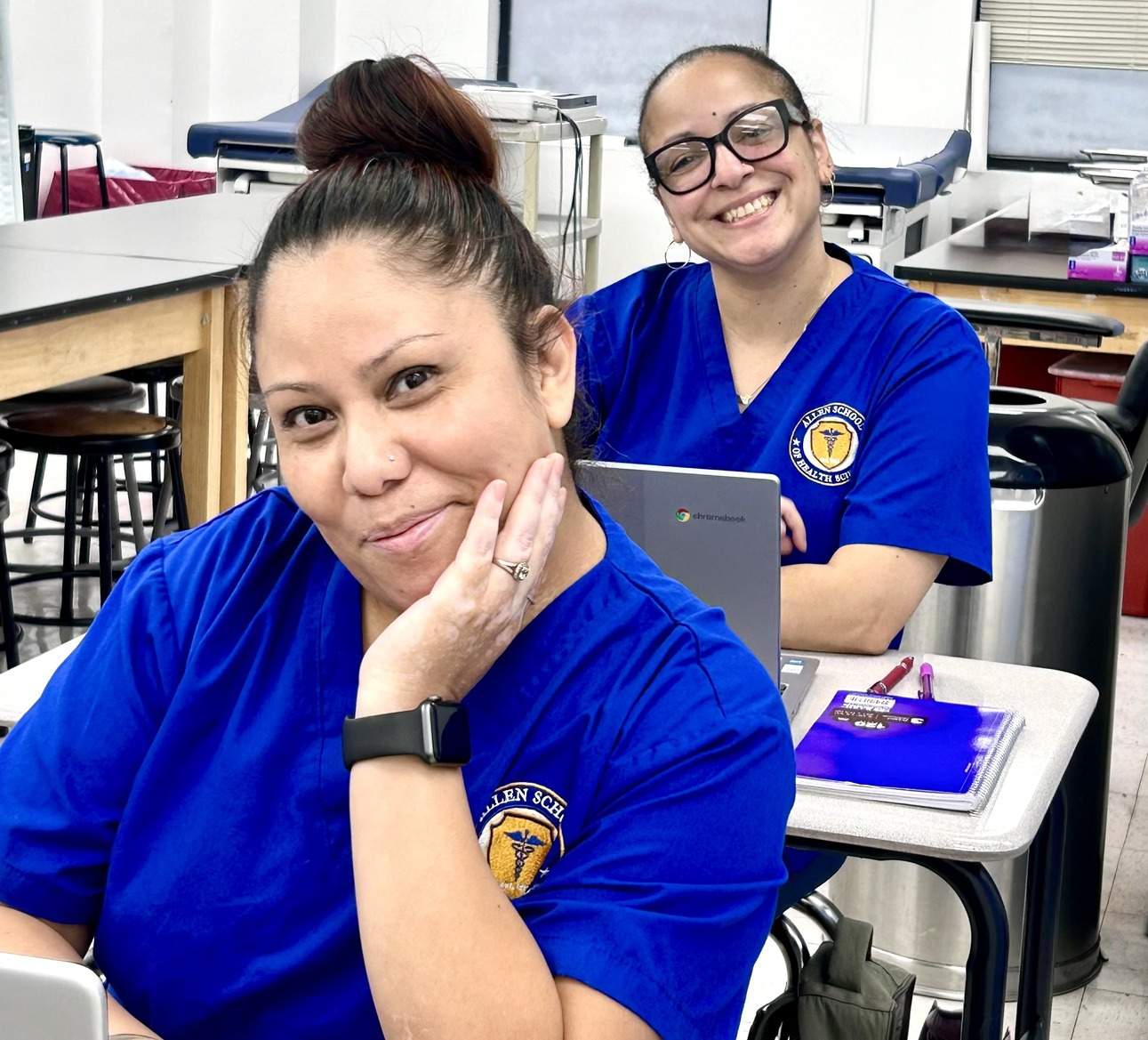AI in Healthcare & the Evolving Role of Medical Assistant
Artificial intelligence (AI) is changing the way healthcare works, helping clinics work smarter, faster, and more efficiently. From virtual assistants that schedule appointments to advanced tools that streamline documentation, AI is quickly becoming part of everyday operations.
But even as technology evolves, the human side of healthcare remains more important than ever. Medical assistants are uniquely positioned to bridge the gap between new technology and compassionate care.
The Rise of AI in Healthcare
AI tools are helping healthcare professionals do more in less time. Whether it’s using algorithms to detect patterns in patient data or helping providers take notes through voice-to-text software, AI is boosting efficiency across the board.
In clinics, administrative tools like AI-powered scheduling, chatbots, and digital charting are being adopted at a growing pace. AI can help with behind-the-scenes work, like managing records or processing insurance information, which gives healthcare workers more time to focus on patients.
This growing connection between AI in healthcare and medical assistants shows how vital it is for today’s students to develop both people skills and technical know-how.
What AI Can (and Can’t) Do in Clinics
AI has come a long way, but it’s not a replacement for human workers. It’s a tool, one that helps trained professionals do their jobs more effectively.
For example, virtual scribes can assist with documentation during patient visits, but they still rely on human oversight. Similarly, AI can suggest appointment slots, but it’s the medical assistant who handles exceptions, solves problems, and ensures patients are cared for.
What AI can do:
- Automate repetitive tasks like appointment reminders or data entry
- Organize and analyze patient records more quickly
- Support clinical decision-making with pattern recognition
What AI can’t do:
- Build trust with patients
- Offer empathy or comfort during stressful moments
- Make independent decisions based on a patient’s needs or emotions
Medical assistants bring human insight to every interaction. Their ability to read body language, explain procedures, and respond with compassion is something no software can replicate.
Why Medical Assistants Remain Essential
As AI tools become more common, the role of the medical assistant is not shrinking, it’s evolving. In fact, clinics are relying on skilled medical assistants more than ever to interpret data, manage tech tools, and keep operations running smoothly.
Medical assistants are often the first and last person a patient interacts with during a visit. They help patients feel safe, heard, and respected. That human connection is critical to quality care, and no algorithm can replace it.
The future of medical assisting lies in this balance – understanding how to use technology without losing the personal touch that defines great care.
Tech Skills Medical Assistants Need in 2025
Modern medical assistants are expected to work confidently with both patients and digital tools. Some of the most valuable skills include:
- Electronic Health Record (EHR) management: Understanding how to update, maintain, and interpret digital patient records.
- Virtual communication tools: Navigating telehealth platforms and remote communication systems with professionalism and clarity.
- Basic data literacy: Interacting with AI systems that flag patient alerts or suggest next steps in care.
- Tech troubleshooting: Knowing how to support patients or coworkers when systems aren’t working as expected.
Learning these tools is the key to making yourself a top hiring candidate in a rapidly changing field. As clinics adopt more technology, they’ll need team members who are trained to keep up.
How Allen School Prepares Students for AI-Driven Care
At the Allen School of Health Sciences, students are prepared to thrive in healthcare settings that are evolving alongside technology. With an experienced faculty of healthcare professionals and a curriculum informed by current trends, students learn real-world skills that matter.
Hands-on training introduces learners to the types of tools and platforms used in today’s medical offices. More importantly, students practice balancing technology use with patient-centered care, learning how to apply AI tools with empathy.
Whether it’s understanding digital charting systems or observing how AI supports clinical workflows, students gain experience that reflects the real environments they’ll soon join.
This type of AI healthcare training helps medical assistants stay competitive and confident, no matter how the industry evolves.
Discover the Future of Healthcare Today!
Technology is reshaping healthcare, but human connection will always be at the heart of great patient care. Medical assistants who understand both the digital and personal sides of healthcare will be vital to the future of medicine.
By combining hands-on training with awareness of today’s tools, technology in medical assistant roles becomes a powerful career advantage, not a barrier.
If you’re looking for a meaningful career that embraces innovation while keeping people first, medical assisting may be the right path for you. Take the next step toward a career where you can make a difference, all while staying ready for whatever the future holds.
Contact our team to learn more about the medical assistant training programs available at the Allen School of Health Sciences today.

